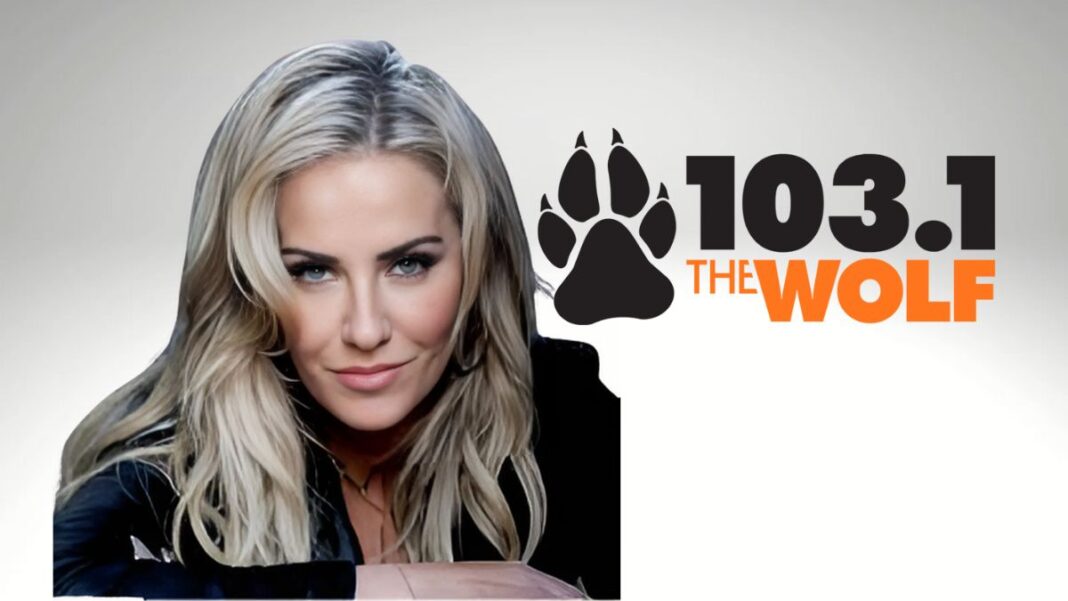You may have heard the story about what went on recently in Chicago between Audacy’s 670 The Score and former host Jason Goff, who wanted to be new host Jason Goff but declined the position in the end because of the terms offered. If you want to learn more, you can catch up by reading the story from Goff’s side or the column Demetri Ravanos wrote on the subject earlier this week. One of the things Goff talked about was the ridiculously one-sided contracts Big Radio companies give that protect the company and offer the potential employee very little protection or consideration.
For way too long Big Radio has gone with the philosophy that you need them a lot more than they need you. My how things have changed. There are plenty of options for content creators to create content and for media salespeople to sell media. Nobody has to feel like they are held hostage anymore by these companies and with what’s happened with the non-compete situation, that offers more opportunity.
IF you as a host and you as a salesperson have done what I have been recommending for years you could leave one of these companies and most likely find yourself much better off. For example, if talent has cultivated relationships the right way, have engaged with their audience and have grown it by providing them more and more quality content in other places, you are set up to succeed should the inevitable happen.
If you are a salesperson and you have not just done well selling advertising, but you have actually become so good at it that clients look at you as part of their marketing team and see you as not just their radio salesperson, you are set up for even greater success. They are buying you. And if you left Big Radio tomorrow and started your own ad agency or went to work at another quality station that serves a similar audience, they are coming with you. Most likely, they are also going to be your best marketing because as well as you have done for them, they’re happy to tell the world.
But what this really boils down to is that if Big Radio companies had a history and reputation for treating employees well and of being companies that make smart decisions, invest in the right things and the right people and are looked at as forward thinking, many of its problems would go away.
To be very clear here, when I say Big Radio, I am referring to iHeartMedia, Audacy and Cumulus. I’ve worked for two of them, Cumulus and Audacy, although I prefer to say I went to work for Entercom, a much different company from Audacy. I also worked for Townsquare Media and am glad to tell anyone who asks they were a great company to work for and they treat their people well. I am sure you will find some that will tell you the opposite, however, that is any big company, but it won’t be a lot of people.
What I can tell you is that a lot of the people I thought made Townsquare Media a great company to work for still work there. What I can also tell you is that when people leave Townsquare, they generally do so somewhat reluctantly. Because they are in smaller markets, a lot of their people end up going to bigger markets, but they do so as someone who is ready for that next challenge because of the training and support they were given by the company. Generally, they end up more frustrated at the next place because they’ve seen that a big media company can treat people well and still push them and have high expectations, even through difficult times.
I don’t find that to be the case with the other companies and neither do you. You hear horror stories. You hear about markets that have been through a dozen GSMs in a short period of time, buildings that are falling apart and have old equipment, salespeople who don’t have working equipment, horrible digital customer service and sales training, being hard to pay and do business with, having a compensation structure for salespeople that is confusing, managers getting laminated cards telling them how to spend their time, staff not getting paid well or rewarded or not being willing to do what it takes to get the best people.
Then there’s the whole ‘we think your business should spend money on marketing, but our business doesn’t spend any money on marketing’ thing and that’s an entirely different column in itself.
At the BNM Summit in Washington DC at the beginning of the month, it wasn’t hard to pick out who worked for Big Radio and who didn’t. The ones who looked horribly stressed and just talked about how they have no budget to do anything or no willingness on the part of the company to try anything new or to hire better people – that’s the attitude you get a lot from talking to people who work for Big Radio.
Talk to the next level down in size, the Beasley’s and the Hubbard’s of the world, they have problems, too, but they seem to be a little less stressed, have more positivity in them, seem more willing to share what is happening in their markets and look as if they still enjoy what they do. Plus, maybe it is different where you are at, but I generally hear positive things about these companies, sans the occasional employee having a bad exit.
Big Radio folks look nervous anytime their phone rings or buzzes as they wonder if this is the call that says their gigantic incredibly well-billing news station was just leased out to a direct format competitor of one of your other properties or that their time with the company has come to an end, however, we thank you for your service and look forward to replacing you with someone from another market who we will pay 0-20% more for them to try and do your job as well.
I don’t want to make it sound like there aren’t good people in these companies, there are, many of them. People who work hard, are smart and really want the market to succeed. To be frank, it’s just that the Big Radio companies are too big, have made too many big mistakes and have, in a lot of cases, had the wrong people in key spots. All three have gone bankrupt, how much more evidence do you need?
Getting back to the main point here, there is no trust whatsoever between Big Radio and their employees. The people who should be the ones telling everyone how cool their job is and how much fun you can have while working hard are the ones that are out there saying the industry is terrible and telling all the bad stuff, ultimately because they weren’t treated well by their employers.
Those types of things make their way into the ad agencies, the news media, social media and everywhere else. All it does is add more fuel to the fire that the industry is one you might want to stay away from.
To use a sports term, radio often commits a lot of unforced errors. We like to blame others and say things are a misconception when the truth is people may think negatively about radio because that’s what people in the radio business told them, mostly negative things.
Big Radio talks about relationships a lot, when the first thing it needs to do is build better relationships in their local markets with their employees.
I worked for Cumulus right as Mary Berner took over. I will tell you I thought the world of her when she started her tenure off by saying she wanted the company to go back to making decisions locally with the support of corporate versus things coming from corporate and local markets doing what they’re told to do.
She did this after trying as best she could to meet with as many of the local managers and employees as possible, so that she could get real feedback, not information filtered through Market Managers or Regional Managers who would just tell her what they thought she wanted to hear. I can’t speak on how it has gone since then and she wasn’t given a very clean slate to start with, but she identified one of the big problems very quickly and then acted on it.
As a quick side note and one suggestion on how to start fixing the problem – I believe the Regional Manager position should be completely reimagined, or eliminated, for that very reason. If someone is not in the markets, willing to dig in, make big sales calls and really try to understand the market and its people, get them out of your organization. Find people willing to go to the markets and discover problems by talking to the people and then helping them with solutions, not just waiting for a phone call from the local manager who is scared to tell you they might need help or that there are problems.
I once had a Regional Manager call me to talk about an auto client who had just stopped all radio advertising in the market. Our cluster had the client on for $30k per month. Mr. Regional wanted to make sure that I understood the goal was not to find another $30k per month client to make up for this loss. That would be really hard.
He wanted me to think of it as needing SIX new clients at $5k per month because, well that equals $30k. I believe he made a quarter of a million dollars per year to pass along that kind of wisdom. Meanwhile the 45-minute call took my time away from leading my team or being out helping someone sell something.
That is how you end up not knowing about problems for months, years or in some cases decades. Many of the Regional Managers in Big Radio are former market managers on the way out the door who think their days of working hard are over. They aren’t going to bring up problems to leadership, then they would have to work on a solution. Having them sit in their home office, acting like Charlie Townsend from Charlie’s Angles (heard sometimes but never seen) is not helping your company at all, it is hurting the company, and I bet this is a big line on your yearly operating budget.
If Big Radio doesn’t start to fix this problem, it will just continue to get worse, and we will all keep wondering why nothing changes and the best and brightest never even look in our direction.
Bottom line, Big Radio needs to remember the golden rule: do unto others as you would have them do to you.
_________________________________________________________________________________
The Best Thing I’ve Heard/Watched Recently
I can’t narrow it down this week as I heard two things this week I want to highly recommend to you. We have written about both of these which is what led me to listen in. In my opinion, and this appears to be universal, Bill Belichick has been pretty incredible on everything he has done as far as media this year.
Many, including me, were concerned his lack of personality would overtake his knowledge and that has been far from the case as he has shown some personality, and nothing is overshadowing what he says because he is pretty much offering a PhD in football each time he is on a show. Earlier this week I eavesdropped in on the Let’s Go! podcast Belichick takes part in with Jim Gray, Maxx Crosby and Peter King. It was that good that I am mentioning it again. Jim Gray (or even Tom Brady) asking questions for Belichick to answer – it doesn’t get much better. Click here to read my feature on the show.
Another podcast I tuned into was the first two episodes of Tom Rinaldi’s new Tom Rinaldi Presents: Sacred Acre podcast which dropped last week and now drops weekly. Episode three just came out as well. Rinaldi tells the story of a high school football coach who was way more than just a high school football coach, who was shot and killed by one of his former players.
Rinaldi is such a great storyteller. This project is his second in the podcast series. Derek Futterman talked with Rinaldi recently and you can read that here. The podcast is on all the major podcast outlets, or you can click here. A pro tip might be to save this for your next road trip so you can binge listen to the whole series after it all comes out. Probably make that drive go by real fast.
_________________________________________________________________________________
In Case You Missed It
In Barrett Media’s ‘Meet the Leaders’ series presented by Point-to-Point Marketing, Demetri Ravanos talked with Ginny Hubbard from Hubbard Broadcasting. She actually said something that pertains well to my words above.
Morris said, in response to a question about the way the radio industry is judged by outsiders, “I think in life, we teach people how to treat us. I think the industry, in some ways, inadvertently has taught the media and the advertising industry to see us in a certain light that in many cases is not accurate…But how we tell that story and how we update our story will be inherent upon us to do it constructively.”
I thought those are three incredibly insightful sentences. The first sentence goes for not only how radio as an industry is thought about by others, but it starts with how radio people treat radio people and talk about radio. The second sentence is just a true statement and leads to the third sentence which only radio can reverse the trend by constantly being the ones who are promoting the industry and its successes.
The whole article is insightful and makes it easy to see why Hubbard seems to be one of the more well-liked companies in the industry. To read it, click here.

Dave Greene is the Chief Media Officer for Barrett Media. His background includes over 25 years in media and content creation. A former sports talk host and play-by-play broadcaster, Dave transitioned to station and sales management, co-founded and created a monthly sports publication and led an ownership group as the operating partner. He has managed stations and sales teams for Townsquare Media, Cumulus Media and Audacy. Upon leaving broadcast media he co-founded Podcast Heat, a sports and entertainment podcasting network specializing in pro wrestling nostalgia. To interact, find him on Twitter @mr_podcasting. You can also reach him by email at Dave@BarrettMedia.com.









